It’s not just the case of waking up late or feeling a little groggy on the morning commute, not getting enough sleep has been linked to a series of health issues, including type 2 diabetes, cognitive decline, heart disease, poor immunity and changes in mood, which can lead to depression and anxiety.
Suddenly, getting a good night’s sleep just shot to number one on all our to do lists, didn’t it?
Medical experts have raised the importance of better sleep health and have said it’s fundamental for our health and wellness. It’s recommended that adults get between seven and nine hours of sleep a night, and to achieve this the body and mind needs a routine to help wind itself down.
Enter the 10-3-2-1-0 method.
What is the 10-3-2-1-0 method and how does it work?
The 10-3-2-1-0 method is a pre-sleep routine that helps the body wind down hours before bedtime. In order to do this, there are a number of steps a person needs to take to achieve that deep, undisturbed sleep we’re all crying out for. Each number represents how many hours before sleep each step in the routine must be carried out.

Caffeine can be found in coffee, coke, energy drinks and is best to be avoided 10 hours before sleep, according to the method (Stefania Pelfini, La Waziya Photography)
10 hours before sleep: no caffeine
Most of us the drink coffee to kick start the day and help us stay alert, awake. So it’s kind of a given that if you want to have a good night’s sleep, caffeinated drinks like coffee and coke before bed would have the opposite effect.
Caffeine is absorbed into our system within minutes and can take up to 10 hours to leave our systems. This is why the method advises you forgo caffeine based drinks 10 hours before you plan on hitting the hay.
3 hours before sleep: no alcohol or food
According to the method, food and alcohol should not be consumed three hours before bedtime. Even though sometimes when you drink alcohol you can feel drowsy, the quality of sleep you’re actually getting is subpar and refraining from drinking improves your sleep quality. When it comes to eating this close to bed time, certain foods can cause stomach discomfort, heartburn, gas – all things that can disturb your peaceful night and stop you from settling.

Certain foods can cause stomach discomfort making it hard to sleep (Jonathan Knowles / Getty Images)
2 hours before sleep: stop working
No one should be working through the night as it is and the 10-3-2-1-0 sleep method encourages people to stop all work related activities at least two hours before bed. Not that you should need more convincing but this helps create a healthy mental divide between working and sleeping. Wind down, take a deep breath, tell the voices in your head to pipe down and relax – all of which will help prepare you not only fall asleep, but stay as asleep too.
1 hour before sleep: no devices
We’ve all heard by now how bad it is to have our devices on when we’re trying to wind down for bed. Although easier said than done, the method advises no screen time one hour before bed. But why? Well, our devices emit a blue light which mimics the sunlight and hinders our body’s production of melatonin – also known as the sleep hormone.
Research shows this causes sleep delays in our bodies which is even more apparent when we’re doom scrolling.
0 hour before sleep: don’t you press that snooze button
I know, I know, it’s practically part of our morning routines to hit that button and enjoy those extra delicious ten minutes of sleep before we face the day. Hate to be the bearer of bad news but this is kind of bad for us.
According to a study published in Sleep, alarm snoozers actually sleep less, experience more broken sleep and drank more caffeinated drinks than those who don’t snooze.
Apparently those little extra minutes we get are low quality, cause brain fog and anxiety and contribute to fatigue. In other words, it’s just not worth it.
So, will you be trying the 10-3-2-1-0 tonight?
Featured Image Credit: Getty Stock Images
Topics: Sleep, Health, Mental Health, Science
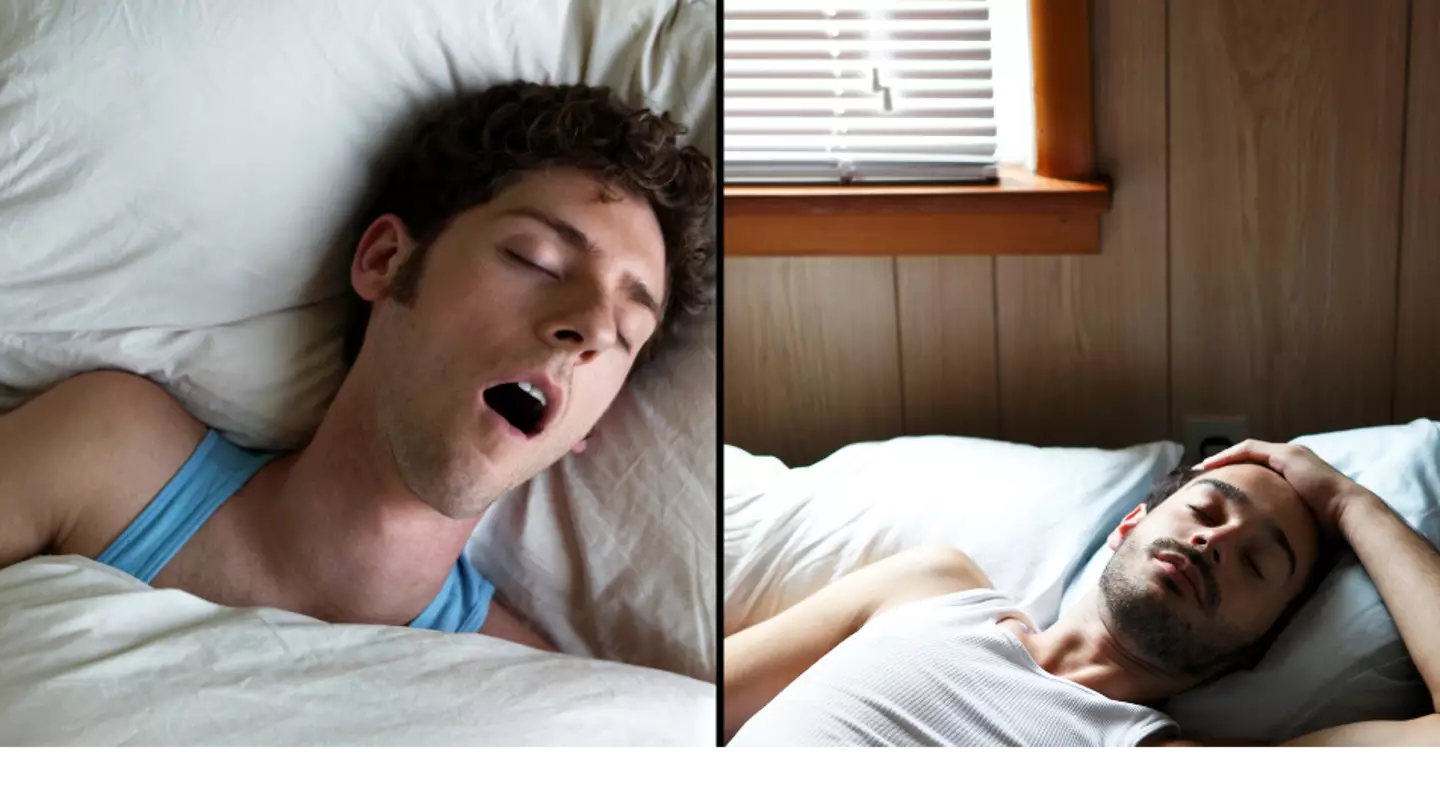
Sleep is crucial to us as humans to rest our minds and bodies ahead of the next day, and a lack of it can often have negative repercussions on your mental and physical health.
Despite adults needing an average of seven to nine hours of sleep, YouGov data reveals that 40% of Brits only get six hours, meaning that almost half of the UK adult population is sleep deprived.
There could be many reasons as to why adults aren’t getting enough sleep though, whether it is illness, work, money issues, or any general adult life problem really.
Some people may have a very active mind though, that doesn’t shut down even when it is bed time and it can be a huge pain to try and calm yourself before it is time to slumber.
A new method being touted as the solution to this issue is called the ‘cognitive shuffle’, with this quick and simple hack almost tricking your brain and stopping it from overthinking any issues or concerns running through your mind.
Sleep experts at Mattress Next Day advise that you incorporate the method into your sleep routine to get the best results.
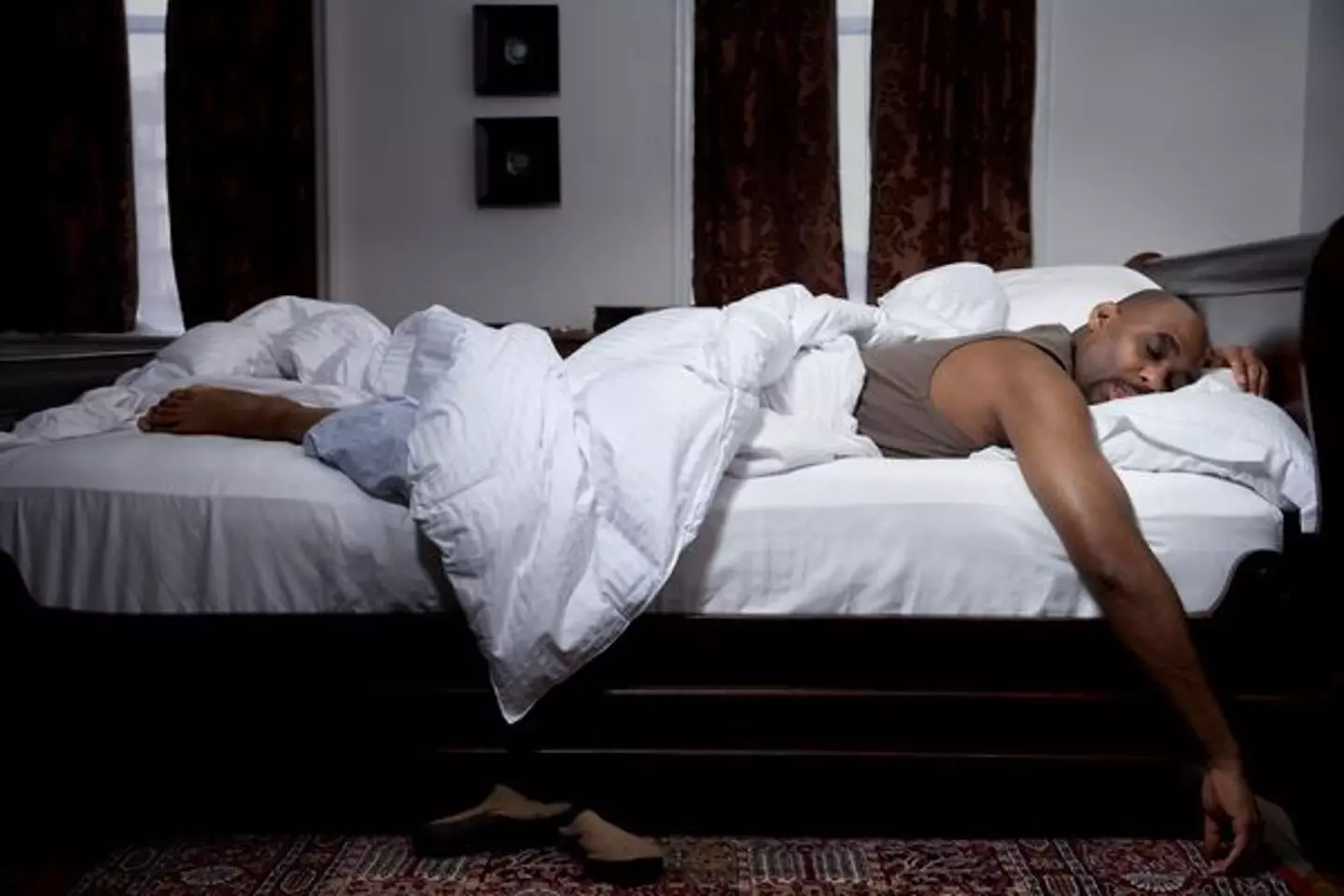
Getty Stock Image
The method is a simple five-minute head exercise, where you would list random items in your head that are easy to visualise and do not threaten your calmness.
Ensure that they are unrelated, for example, a guitar, carrots, Cinderella – this process should tire your brain out and help to keep it away from any negative thoughts or issues that are preventing you from falling asleep.
The experts also recommend that you develop good habits throughout the day, with one of them being to get some light immediately after waking up, whether that be through switching on a light or drawing your curtains, telling your brain to stop producing the sleep hormone melatonin.
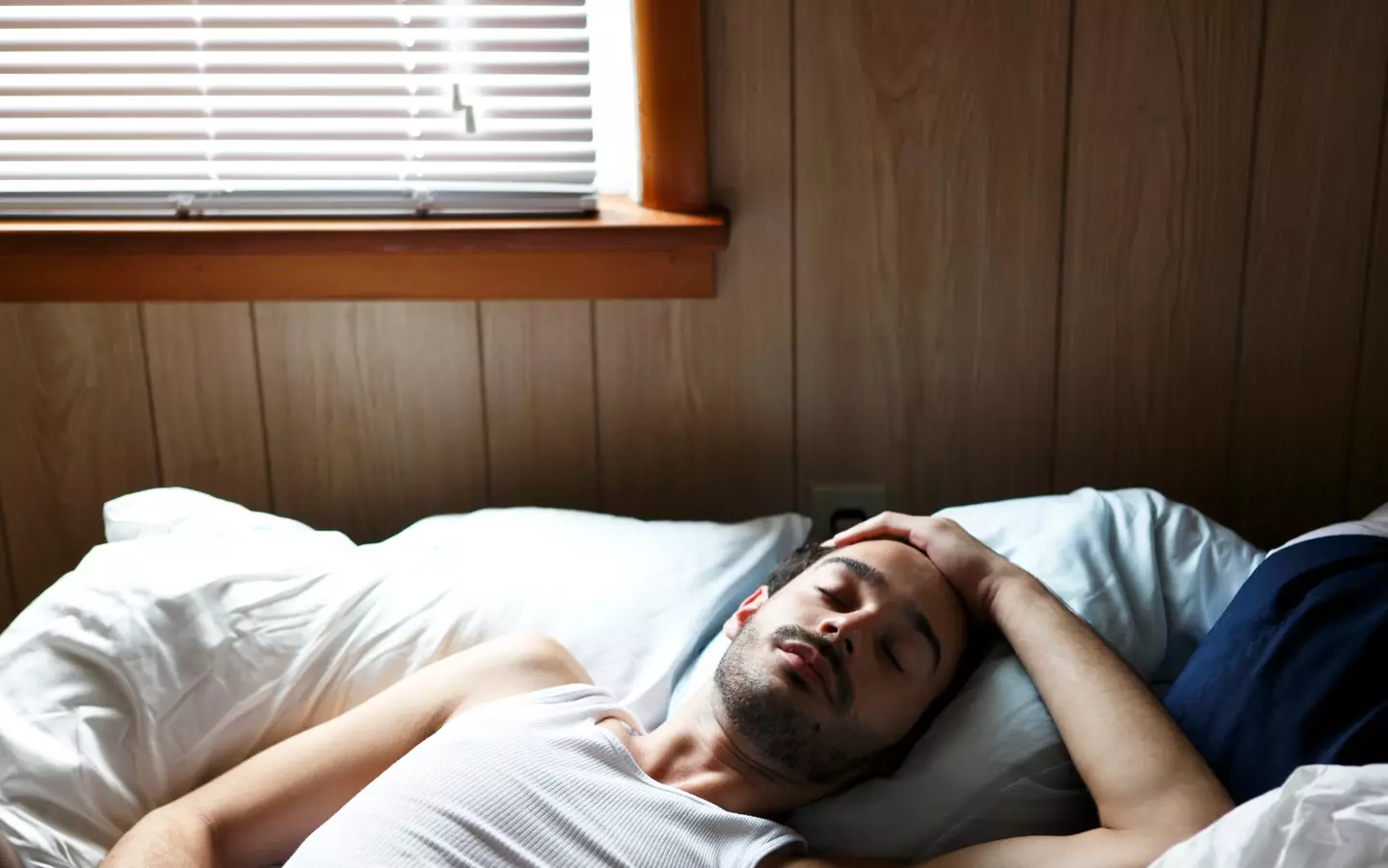
Getty Stock Images
Natural light is key too, with a 10-minute walk aiding in the production of your feel-good hormone, serotonin, which will boost your mood before bed and stop you from feeling negative while tiring your body out.
A 30-minute workout in the morning is also recommended, as exercise and sleep are intrinsically connected, with exercise being proven as a way to improve both the duration and quality of your sleep, and good sleep helping to increase energy levels for exercise.
If you think you have a sleeping problem and are struggling, the NHS recommends contacting your GP.
Featured Image Credit: Getty stock images
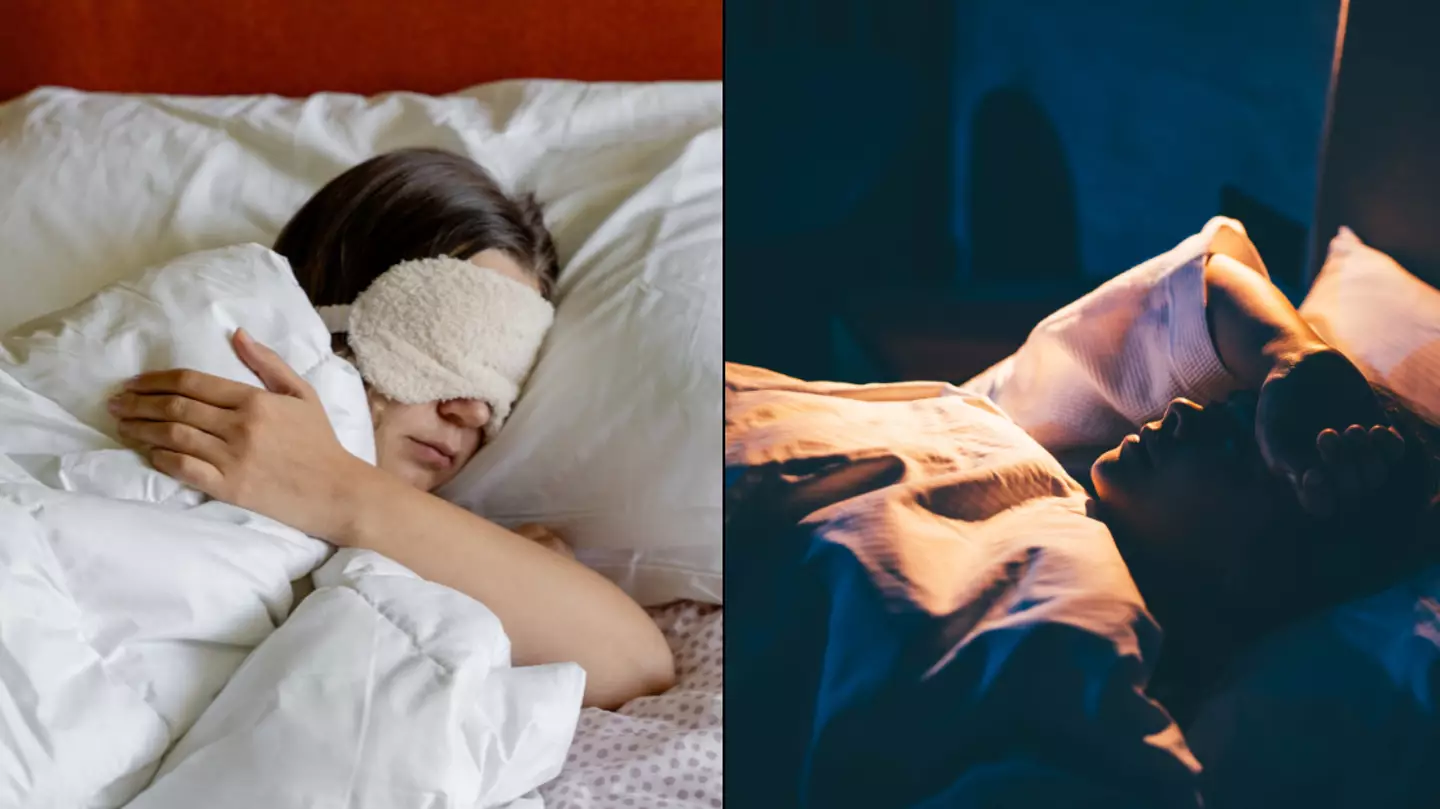
Despite stifling yawns all day and longing for the moment your head hits the pillow later that night, it seems that as soon as you get under the covers, you’re wide awake.
No matter how exhausted you seem to feel or how absolutely essential getting some shut-eye that evening is, your body and brain seem to be resisting sleep with all of their might.
People have tried it all – counting sheep, blasting white noise and even the military nap method – but nothing seems to work…and let’s be honest, constantly feeling burnt out and having bags under your eyes puts years on you too.
But don’t give up hope on getting yourself to sleep soundly just yet, as a US doctor just might have the answers.
Dr Scott Walter, who is based in Denver, explained that ‘cognitive shuffling’ may be the key to helping people drift off to the land of nod faster.
The board-certified dermatologist explained that this handy mind trick is an ‘absolute game-changer’ when it comes to falling asleep with speed, especially for those who find their brain is racing when they get into bed.
But you could dually calm your nerves and knock yourself out with cognitive shuffling, according to the medic.
In a TikTok video explaining how it works, Dr Walter said: “It’s a way to rearrange or reorganise your thoughts, similar to shuffling a deck of cards — basically, distracting your mind from conscious thought patterns that may keep you awake.”

(Getty stock image)
He explained that cognitive shuffling ‘mimics what are called micro-dreams, which occur during the transition to sleep, letting your brain know, hey, it’s safe to fall asleep’.
There are a couple of ways to carry this out, according to Dr Walter.
He continued: “One is just thinking of random words or objects that have nothing to do with each other.
“For example; cow, leaf, sandwich, butter, liver. Things like that — just random words that make no sense.”
But for those who think that sounds too much like hard work, there is another way to do it.
Dr Walter said: “First, you pick a letter of the alphabet. Number two, you start counting your heartbeat. Then, every eight beats, you think of a word that begins with that letter.”

(TikTok/@denverskindoc)
By cognitive shuffling, you can distract your brain from any consuming thoughts which may keep you up at night, as well as reducing any anxiety you may feel and letting your mind know it’s time to rest.
Social media users seemed pretty impressed by Dr Walter’s suggestion and promised to give it a go, while also sharing their own sleep methods in the comment section.
If you’re keen to master cognitive shuffling as quick as you can, neuroscientist Dorsey Standish reckons you should choose a ‘root word’, which essentially means it is uncomplicated, such as ‘relax’.
He advises people to start by picturing words which begin with ‘R’ too, for example rat, rent or road.
When you’ve thought of all the ‘R’ words you can, move onto the next letter in ‘relax’, which would be E.
Standish says you should repeat this process until you fall asleep, which usually takes between 10 and 15 minutes.
Featured Image Credit: Getty stock images
Topics: Sleep, Health, News, Mental Health
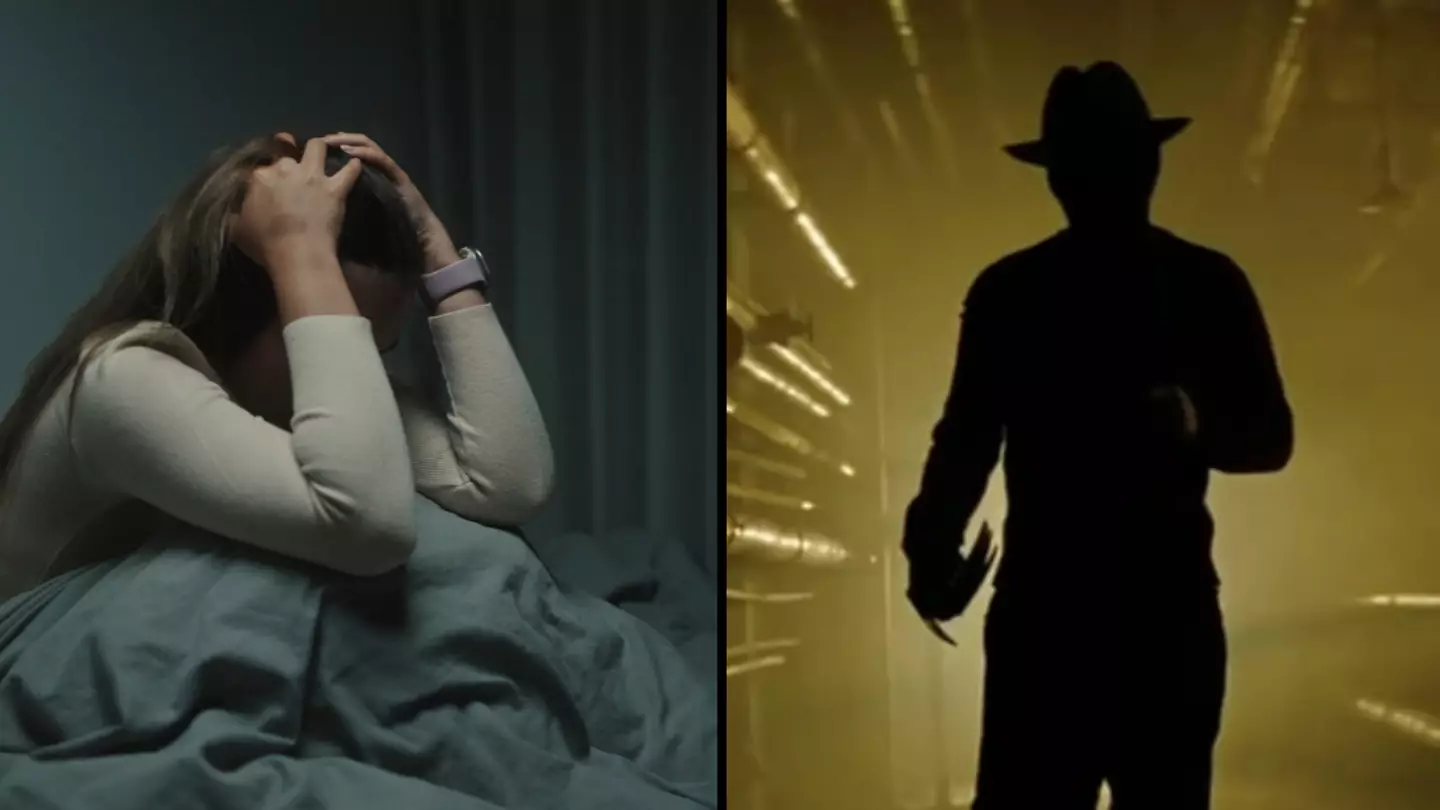
It might have been 40 years since the terror of Freddy Krueger was unleashed upon global audiences, but the fear of A Nightmare on Elm Street lives on four decades later.
And with it, the worry that the film brought about by the idea of you dying in your dreams.
Now, a scientist has revealed what that means for you if you’ve experienced it, and it is rather chilling. Pay attention.
Back on 9 November, 1984, the A Nightmare on Elm Street franchise was born and with it, chilling images of Freddy Krueger that have defined the horror genre alongside other villains such as Michael Myers, Jigsaw, and more recently, Art the Clown.
Haunting teenagers in their dreams, Krueger would attack and kill them in the Wes Craven franchise, including a very young Johnny Depp in his very first film role as Glen Lantz.
And while actual death is not something that is going to happen to you for imagining such a thing in your vivd dreams, the nightmare itself could indicate something worrying nonetheless.
Professor Tiina Paunio, a sleep expert from the University of Helsinki, told MailOnline that these nightmares are likely related to parts of our brains associated with stress.

Krueger gets you in your dreams but thankfully, only in films (New Line Cinema)
It is during a nightmare that there is a spike on the levels of something called noradrenaline in the amygdala and locus coeruleus regions of the brain; regions of the brain associated with fear, anxiety, and rage.
“Nightmares usually occur under emotional stress – so acute life stress is one risk factor,” Professor Paunio said.
“Lifestyle, in particular alcohol use, is another well-known risk factor for nightmares.”
Getting scared, even in dreams, sees your body enter fight or flight mode. When this happens, your system is flooded with adrenaline and cortisol due to the fear that feels very real.

Nightmares can leave you feeling awful given how real they feel (Getty Stock Image)
And while adrenaline can actually be the thing that saves your life in a real life encounter with danger, it is in fact lethal to your organs in large doses.
So if you’re vulnerable, there is a chance the made up fatal encounter could end up costing your life, the professor explains.
This is rare, she adds.
“Generally, the health risks of nightmares are typically indirect and are linked to the causative factors that underly nightmares,” Prof Paunio explained.
“In vulnerable individuals, for example, those with a heart disease, nightmares can indirectly contribute to death, although this is rare.”
Being physically frightened to death is incredibly rare, the American Heart Foundation says. In fact, if this happens it is likely due to an underlying cardiovascular condition.
Featured Image Credit: Getty Stock Image/New Line Cinema
Topics: Film, Health, Mental Health, Science, Sleep
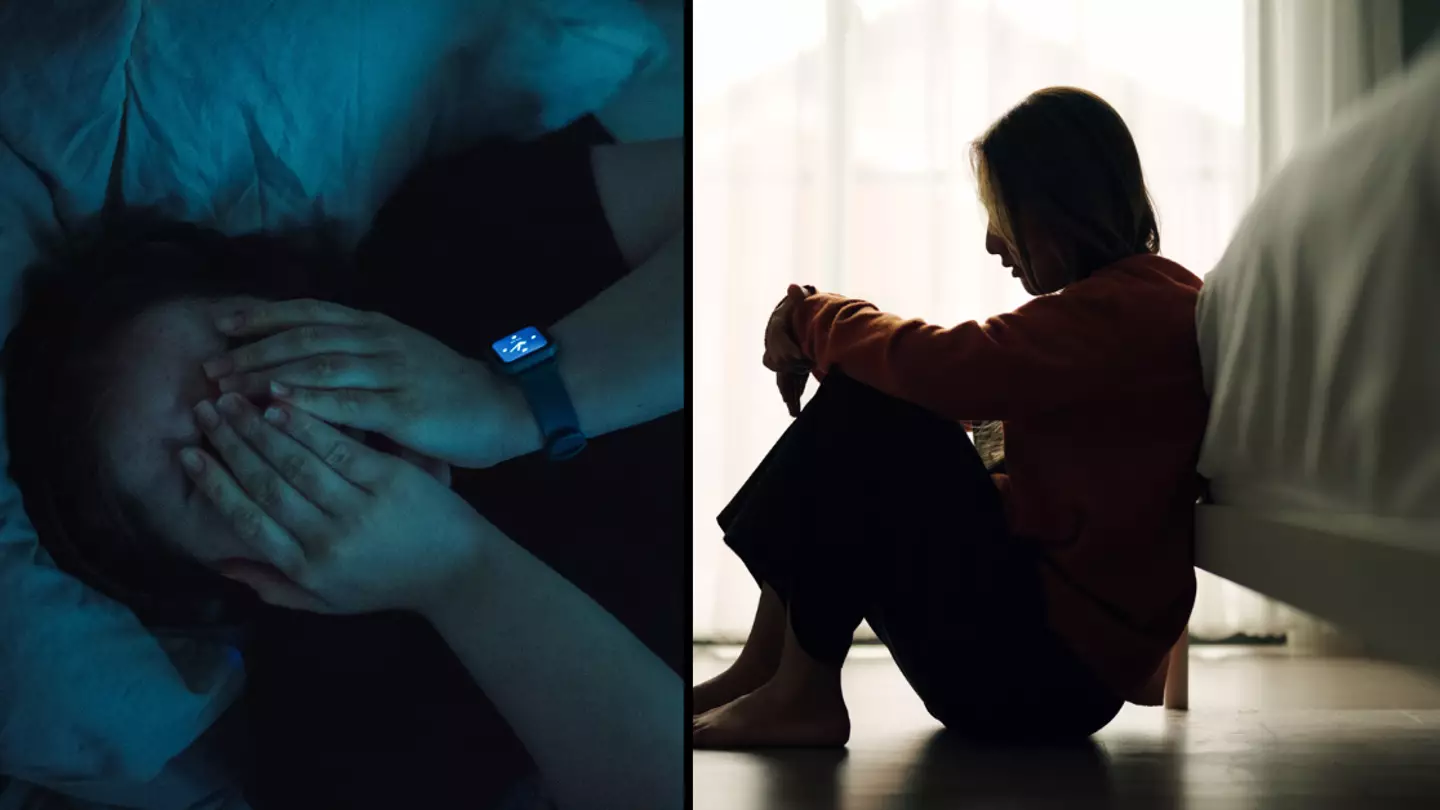
Struggling with anxiety is something society has never been better equipped to combat, with the issue spoken about and accepted right across modern life.
It’s something that impacts people in a variety of different ways.
One significant way it can impede a person’s daily life is when it comes to trying to sleep and relaxing at the end of a day.
There is solid, scientific reason for why anxiety impacts us worse at night time, as well as ways to help with general tiredness and fatigue.
For some, it’s about having a background noise when they try and get to sleep; although this is something that isn’t without its own underlying problems.
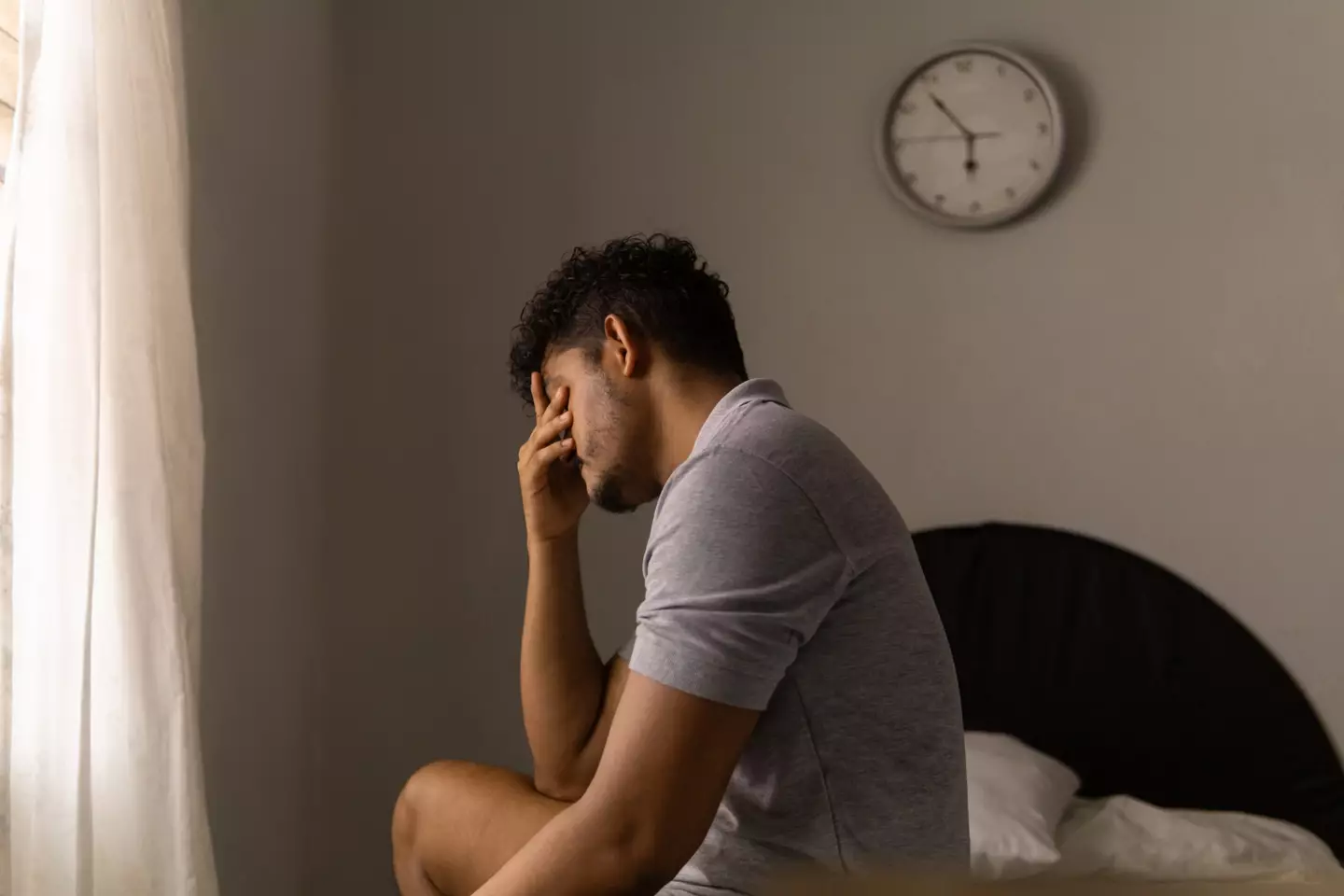
You’re not alone if you find it difficult (Getty Stock Images)
If anxiety is taking a real toll on your ability to sleep, don’t worry too much., there is advice out there that can help.
With that in mind, LADbible spoke to Professor Ivo Vlaev, a behavioural psychologist from Warwick Business School at the University of Warwick.
“Nighttime anxiety is a common experience due to the combination of environmental, psychological, and biological factors that occur as the day winds down,” he said.
“Reflecting on the day’s events, overthinking in the quiet, and the body’s stress response can all contribute to feelings of heightened anxiety. By adopting relaxation techniques and cognitive-behavioral strategies, individuals can better manage their nighttime anxiety and achieve more restful sleep.”
Professor Vlaev has issued seven ways you might be able to address your anxiety and its impact on your sleeping pattern.

Anxiety flares up at night time for millions of people around the world (Getty Stock Images)
Creating a relaxing bedtime routine
Engaging in relaxing activities before bed can work wonders.
Activities such as reading, meditating, or taking a warm bath, can help signal to your brain that it’s time to wind down, Prof Vlaev tells LADbible.
He says: “Establishing a consistent bedtime routine can improve sleep quality and help reduce nighttime anxiety.”
Limit stimulation before bed
You should try and reduce your exposure to stimulating activities before you call it a day.
We’re talking about activities such as watching television, scrolling through social media, or working late. Avoiding all of these can help ease the transition to sleep.
“The blue light emitted by screens can interfere with the production of melatonin, the sleep hormone, making it harder to fall asleep,” the professor says.
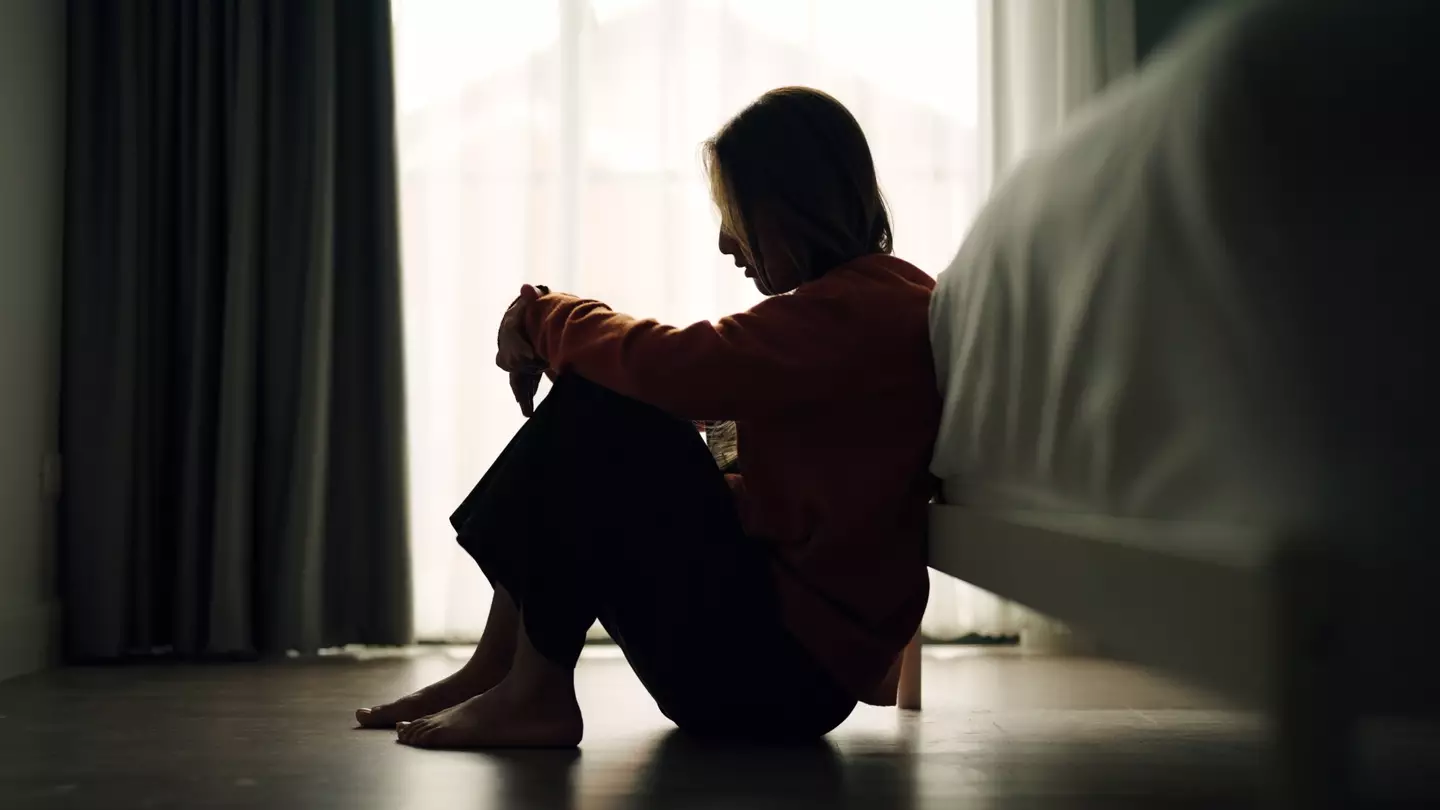
This advice might be helpful (Getty Stock Images)
Mindfulness and meditation
Have you ever thought about mindfulness techniques and meditation?
Both are proven when it comes to shifting your focus from overthinking to the present moment.
Prof Vlaev says: “Techniques such as deep breathing exercises, progressive muscle relaxation, and body scans can be helpful for calming an overactive mind.”
Journaling
Writing down anxious thoughts in a journal before bed can help externalise your worries and put them into perspective, Prof Vlaev explains.
He says: “This helps the brain ‘offload’ worries, reducing the likelihood of ruminating on them while trying to fall asleep.”
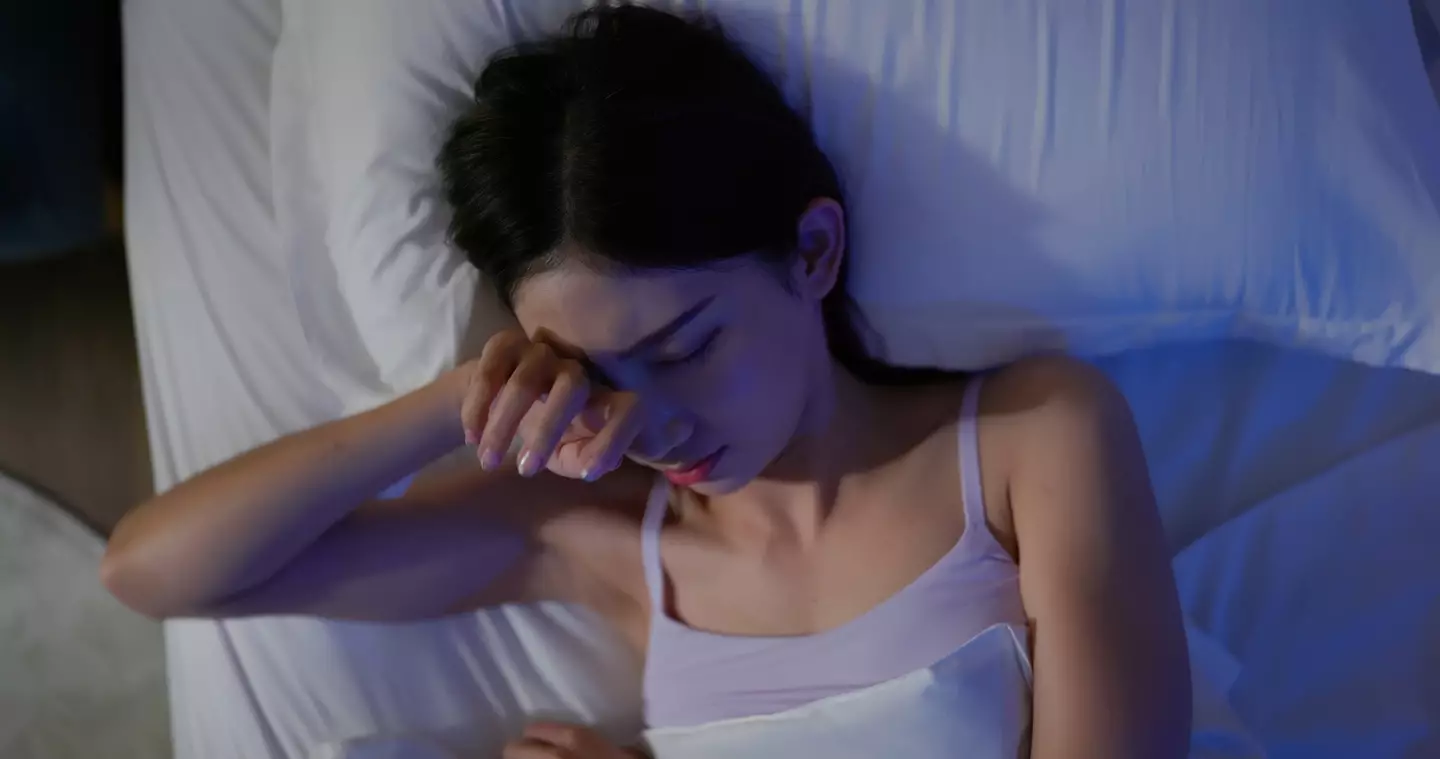
If you need to seek professional help, please do (Getty Stock Images)
Cognitive behavioural therapy (CBT)
Cognitive behavioural therapy, known as CBT, works wonders for many when it comes to challenging those lingering anxious thoughts.
Prof Vlaev says: “Cognitive restructuring helps identify and replace negative, anxious thoughts with more balanced and rational perspectives.
“If your mind starts to spiral into worry, ask yourself – ‘Is this worry productive? Is there any evidence for or against this thought?'”
Limiting your caffeine and sugar consumption
This could have an impact on you without you even realising, especially if you are religious when it comes to having your daily brews.
Prof Vlaev says: “Caffeine and sugar can disrupt your sleep and make it harder to wind down.
“Avoid consuming caffeine or sugary foods several hours before bed to allow your body and mind to relax.”
Make use of white noise or relaxing sounds
Spotify is full of white noise tracks or relaxing background sounds, like waves crashing or rain against windows.
“Soft background noise, like white noise machines or calming music, can mask external disturbances and prevent complete silence, which may help prevent anxious thoughts from surfacing,” Prof Vlaev says.
If you’re experiencing distressing thoughts and feelings, the Campaign Against Living Miserably (CALM) is there to support you.
They’re open from 5pm–midnight, 365 days a year. Their national number is 0800 58 58 58 and they also have a webchat service if you’re not comfortable talking on the phone.
